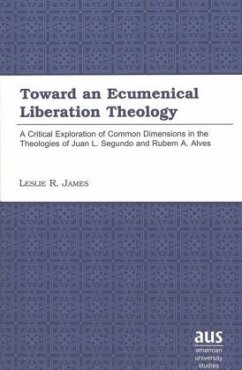Latin American Liberation Theology is perhaps the most dramatic expression of the turn to history and experience in Post-Vatican II Roman Catholic theology. The emphasis on contextuality, socio-historical transformation and the privileged status of the poor are some of the most widely acknowledged features of Latin American Liberation Theology, but the movement represents much more. Liberation Theology, as a common thrust among Latin American theologians, represents a theological movement with a vital ecumenical dynamic that transcends the divides of the Reformation and the Counter-Reformation. This ecumenical dimension of Liberation Theology is not often adverted to and has been little studied. This book corrects this deficiency. Despite differences in style, theme, and personal vocabulary, Juan L. Segundo and Rubem A. Alves are excellent examples of the fundamental post-sixteenth-century thrust in Liberation Theology.
"This thoughtful comparative analysis demonstrates that ecumenism and Liberation Theology are not only compatible but complementary. Scholars in either field will find it a valuable resource." (Ronald Modras, Saint Louis University)
"Leslie R. James has chronicled for us a probing analysis of the sources of an ecumenical Liberation Theology. His work helps us bridge the gap between Protestant and Catholic approaches to Liberation Theology and challenges the church to expand its vision of liberation. This book is an excellent example of the growing rapprochement that describes the common theological and interfaith enterprise and its relevance to civic responsibility in the new millennium. It is essential reading for students in various disciplines including religion, history, conflict studies, Latin American and Caribbean studies, and political science." (Noel Leo Erskine, Candler School of Theology, Emory University)
"Leslie R. James has chronicled for us a probing analysis of the sources of an ecumenical Liberation Theology. His work helps us bridge the gap between Protestant and Catholic approaches to Liberation Theology and challenges the church to expand its vision of liberation. This book is an excellent example of the growing rapprochement that describes the common theological and interfaith enterprise and its relevance to civic responsibility in the new millennium. It is essential reading for students in various disciplines including religion, history, conflict studies, Latin American and Caribbean studies, and political science." (Noel Leo Erskine, Candler School of Theology, Emory University)
